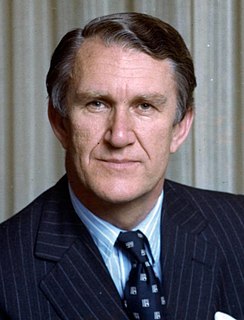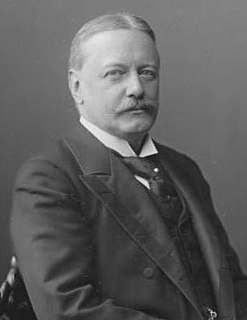A Quote by Malcolm Fraser
Although our capacities to advance our interests are limited, we should be active and constructive in pursuit of a peaceful and favourable international environment.
Related Quotes
'Environment' is not an abstract concern, or simply a matter of aesthetics, or of personal taste - although it can and should involve these as well. Man is shaped to a great extent by his surroundings. Our physical nature, our mental health, our culture and institutions, our opportunities for challenge and fulfillment, our very survival - all of these are directly related to and affected by the environment in which we live. They depend upon the continued healthy functioning of the natural systems of the Earth.
My hope is that the president-elect [Donald Trump] coming in takes a similarly constructive approach, finding areas where we can cooperate with Russia, where our values and interests align. But that the president-elect also is willing to stand up to Russia where they are deviating from our values and international norms.
The American tradition of foreign policy exceptionalism, our grand strategy as a nation, reaches back much further. Really at the turn - the end of the 19th century, when we achieved power a generation after the Civil War, the outlines of an American vision came into focus, and what we - it was based on two things. One, our realization that our values and our interests were the same, and that our business interests would advance as our values advanced in the world.
It is not our affluence, or our plumbing, or our clogged freeways that grip the imagination of others. Rather, it is the values upon which our system is built. These values imply our adherence not only to liberty and individual freedom, but also to international peace, law and order, and constructive social purpose. When we depart from these values, we do so at our peril.
As a great socialist power the Soviet Union is fully aware of its responsibility to the peoples for preserving and strengthening peace. We are open to peaceful, mutually beneficial cooperation with states on all continents. We are for the peaceful settlement of all disputable international problems through serious, equal, and constructive talks.
I argue for a relational conception of the person as a basis for an environmental ethic that can encourage us to preserve the environment not solely on the basis of satisfying human interests and not solely because we might attribute intrinsic value to the environment, but because the environment is something with which we can potentially enter into constructive relationship, as part of what makes us who we are or transform who we are and open us up to new interests.


































